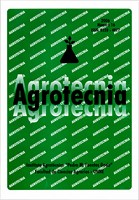Universitary extensión experiences in vegetable gardens from social organizations
DOI:
https://doi.org/10.30972/agr.0304651Keywords:
agroecology, participatory workshops, urban soils, urban horticultureAbstract
With the population growth in the last years, urban agriculture has had a great development. In Argentina, some workers’ movements have been developing community vegetable gardens under agroecological systems in working-class neighbourhoods. The production is carried out on urban soils, whose natural characteristics have been modified. There is no previous information either of these soils or about effects of the agroecological system. This information is important to detect problems and to adapt the management to the local situation. Education and extension programs help to pursue this aim and participatory workshops allow committed participants to reflect collaboratively. In this sense, the aim of this work was to foster equity, mutual understanding and exchanges so as to contribute to the improvement of local community production systems functioning on urban soils. Two workshops on community vegetable gardens were held in two working-class neighbourhoods from La Plata. In these workshops a diagnosis of soil health was carried out and also water was analysed. In addition to this, proposal agreements emerged to improve the existing production systems. The experience has generated exchanges and mutual understanding between the educational community and vegetable garden keepers. Also, vegetable garden keepers’ necessities and topics that require greater attention in future extension programs were highlighted. One of the greatest challenges for the future is to increase assistance and intervention of vegetable garden keepers in community spaces.Downloads
Published
2020-12-21
Issue
Section
Trabajos de extensión

